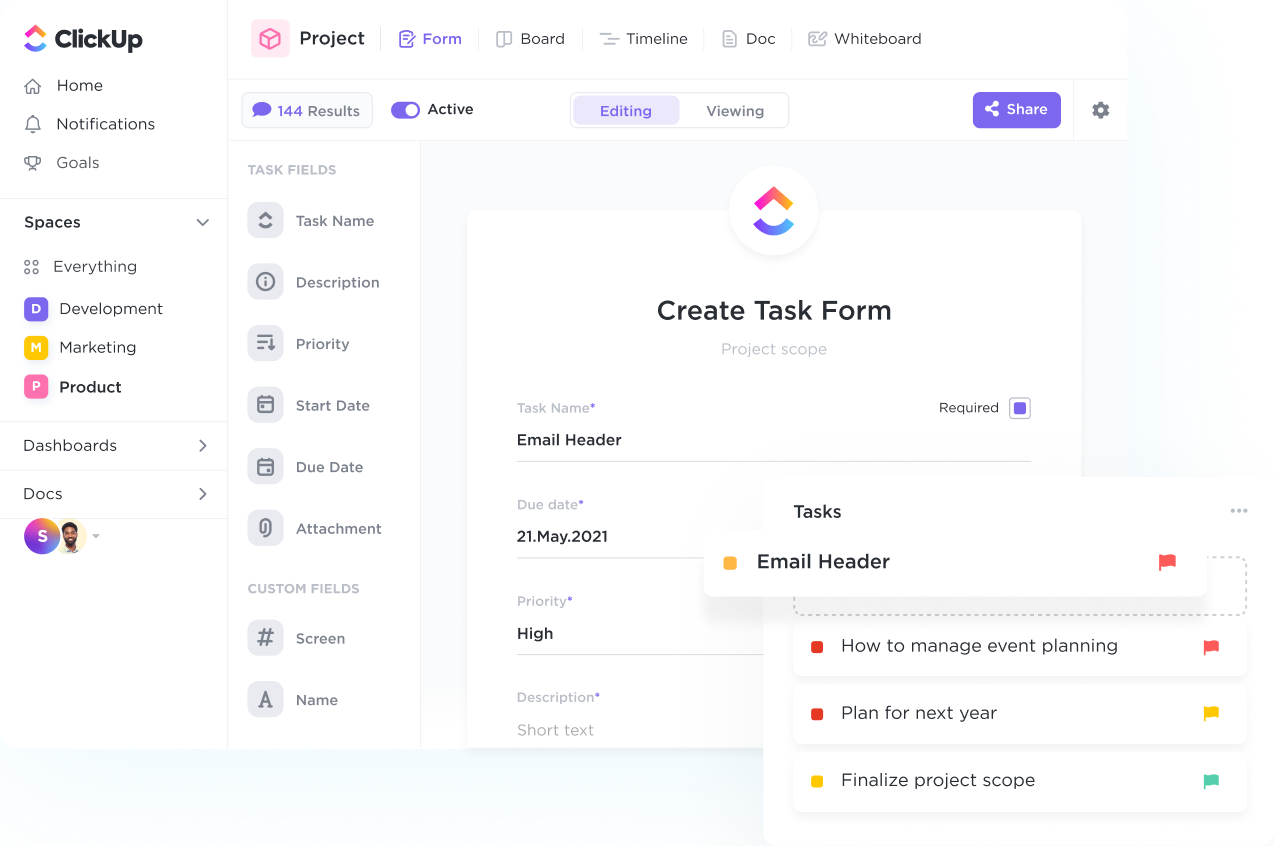Build the perfect customer database.
Create your ideal system to store and analyze contacts, customers, and deals. Add links between tasks, documents, and more to easily track all your related work.

Streamline your scheduling process with ClickUp's customizable CRM system designed specifically for Schedulers. Easily track client interactions, manage appointments, and stay organized all in one place. Say goodbye to scattered information and hello to a centralized hub for all your scheduling needs with ClickUp.
Free forever.
No credit card.
Trusted by the world’s leading businesses
Create your ideal system to store and analyze contacts, customers, and deals. Add links between tasks, documents, and more to easily track all your related work.

Streamline your intake process, organize response data, and automatically create tasks with custom branded Forms powered by conditional logic.

CRM software helps schedulers streamline work processes by centralizing all scheduling information, automating reminders and notifications, optimizing resource allocation, and providing real-time updates and communication channels for enhanced coordination and efficiency.
Key features of CRM software beneficial for schedulers include calendar integration, task management, automated reminders, and scheduling tools for efficient appointment setting and management.
Yes, CRM software can integrate with scheduling tools and platforms, allowing for centralized data management, improved coordination, and enhanced efficiency in scheduling and customer interactions.